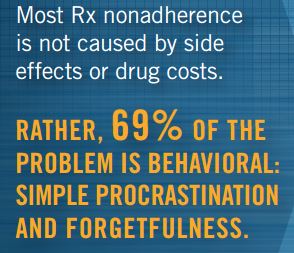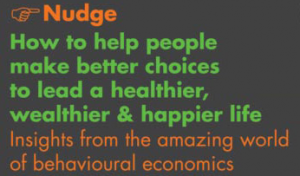I Forgot to Take My Meds – But Why?
Sunday, July 28th, 2013 When we forget to take our medications (or decide not to) it ends up costing billions of dollars annually due to additional hospitalization, ER visits, testing and other medical care. But why do fail to take medications as prescribed? Some argue that the main reason is that drugs cost too much or that they produce side effects we will not tolerate. According to Express Scripts Lab, the main reason (69% of the time) is behavioral. We forget or procrastinate and miss a dose, are slow to refill or don’t go to the doctor to have a prescription renewed in a timely way.
When we forget to take our medications (or decide not to) it ends up costing billions of dollars annually due to additional hospitalization, ER visits, testing and other medical care. But why do fail to take medications as prescribed? Some argue that the main reason is that drugs cost too much or that they produce side effects we will not tolerate. According to Express Scripts Lab, the main reason (69% of the time) is behavioral. We forget or procrastinate and miss a dose, are slow to refill or don’t go to the doctor to have a prescription renewed in a timely way.
This is an opportunity for cognitive designers because prospective memory (remembering to remember), managing procrastination and helping people deal with complexity falls squarely within our discipline.
And there have been some interesting attempts. Two covered on the Cognitive Design Blog include GlowCaps and Smart Pill Boxes.
But we have a long way to go. Taking your meds can be complex business especially if you take more than 4 regularly and must do so on a different schedule. Insight into just how complex this can get also comes from Express Scripts Lab. They built a risk model to predict 6-12 months in advance if someone is likely to stop taking their medication. It works with 98% accuracy (which is amazing) but relies on some 400+ factors including for example, if you have children in the house and if you are male and have a female doctor.
I am interested to hear from readers that are working on the Rx non-adherence problem. What insights do you have from studying people that have developed natural solutions by and for themselves?


